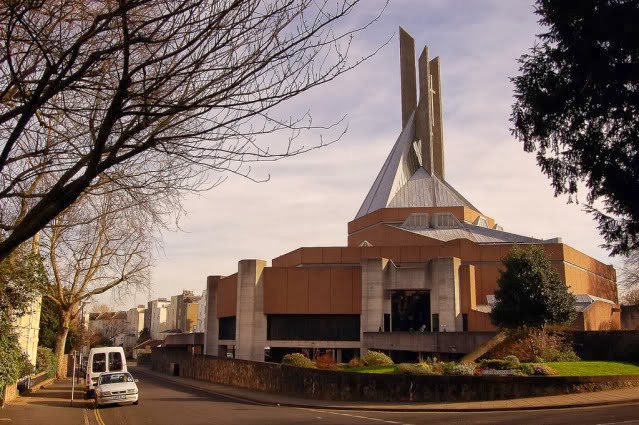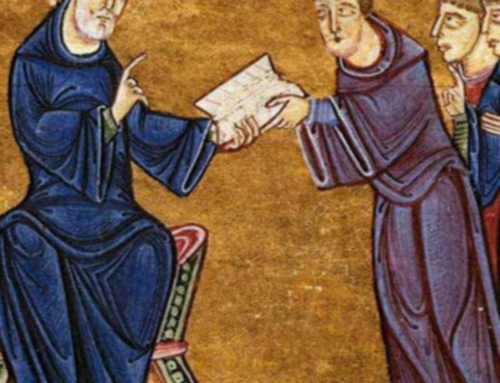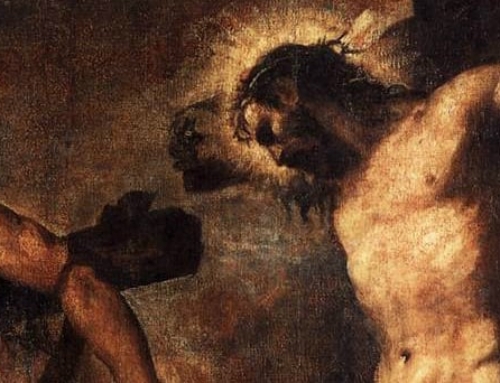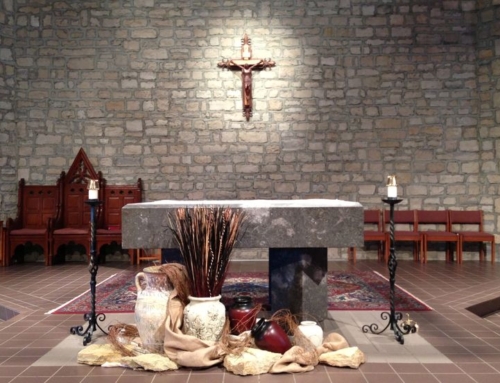Scott Hahn’s wife Kimberly was once asked what were the three most difficult things about the Catholic faith that she had to overcome to enter full communion with the Catholic Church.
She answered, “Mary, Mary and Mary.”
It is certainly true that for many converts overcoming the Anti-Mary bias in Protestantism is a big hurdle. As an Anglican I was okay with Marian devotion but got stuck on the dogma of the Immaculate Conception. BTW this post explains how I got over that problem.
Mary is a problem for lots of converts before they enter the church, but I’ve been thinking more the last few days about the problems converts have after they enter the church. There are problems in becoming Catholic, but there are also some major problems in staying Catholic.
People convert to the Catholic Church for all sorts of reasons, but the majority of Evangelical Christians who become Catholic have gone on a journey that is mostly intellectual and partly spiritual. They are drawn to the truth claims of the Catholic Church. They’ve dipped into the writings of the Apostolic Fathers and found Catholicism. They’ve read some conversion stories and some books or websites on apologetics. They’ve asked the questions and got the answers. They’re convinced of the truth of the Catholic Church, so they’re prepared to swim the Tiber.
Added to this are the spiritual and aesthetic attractions. They have discovered a deeper spirituality. The Catholic discipline of prayer and the lives of the saints has drawn them. Maybe they have also been to a beautifully celebrated Mass, visited some cathedrals or beautiful churches, heard lovely music and been drawn to the beauty of holiness.
Then with great joy and trepidation–and often at great personal sacrifice–they are received into the Catholic Church.
The reality is often disappointing. After the honeymoon period is over they maybe roll over on a Sunday morning and think, “Who have I married?”
Here are ten problems Catholic converts face and some suggestions on how to deal with them
- Lack of Fellowship – Protestant churches offer great fellowship. They are often smaller and friendlier than Catholic parishes. They seem to hold folks together in a real common commitment and faith. Going to Catholic Mass, in contrast, seems cold and impersonal. The main reason this is the case is because Protestant congregations don’t really get together along doctrinal lines. They get together along socio-economic lines. The good, upper middle class white folks who go to the local Presbyterian church are all from the professional, affluent class. The working class folks who go to the Assembly of God live in the same lower income bracket. This is why they have warm fellowship. Catholics, on the other hand, are extraordinarily diverse. In our parish we may have a top end executive and his family sitting in front of a Nigerian refugee–a struggling single mother from a Hispanic background next to a middle class white family with six well scrubbed kids. How to get over it? Don’t expect to find the warm fellowship at Mass. Join one of the sub-groups in the parish–the soup kitchen, the choir, the church cleaners, the men’s fellowship etc. Join a sub set of a religious order. Third order Franciscans, Carmelites or Benedictine oblates. Join one of the new ecclesial communities. Start a home Bible study group. Warm fellowship exists in the Catholic Church, but it is not where you expected to find it.
- Lousy Liturgy – You came to the Catholic Church because it was Catholic. You expected reverence and respect. You found folks in short shorts chewing gum and chatting during Mass. You expected Palestrina. You got Eagle’s Wings. You expected Scott Hahn for your preacher. You got Beto O’Rourke. You expected beauty and ceremony. You got careless and sloppy. What to do about it? I’m not in favor of church shopping, but it’s a reality. Choose a church where the liturgy is at least simple and straightforward and the music is not a rock band. If the music is intolerable choose a Mass where there is no music. If you have the talent and experience, offer to form a schola for one of the masses where there is no music. Be positive and support what is going on and try to gently move it in a better direction. You’ll soon find there are others who share your views and are willing to help make it work.
- Diversity – This is linked with the first problem. Protestants are used to unity within their congregation. This is because Protestant churches are sects. They’ve split away from others for some doctrinal or moral teaching. Therefore there is an underlying unity of viewpoint. When this is combined with the socio economic factor that unity is a powerful and attractive force. In the Catholic church it ain’t so. It’s a big tent and we’ve got people from all over the world and from every socio economic background. We’ve also got a range of spiritualities and a range of theological viewpoints. This is one of the strengths of the church, but it’s not easy to cope with if you’re used to agreement on all matters with your fellow churchgoers. The only thing to do about this is to think outside the box, listen and learn from those who are different. Catholic means “universal” get used to it.
- Lousy Leadership – The irony of this one is that the Catholic priest, more than the Protestant pastor, is (in theory) much more of an autocrat. Father knows best. Father holds the check book. What father wants father gets. In fact, converts find that it is the other way around. Their Protestant pastor was a much stronger leader. The Catholic priest seems either like a wimp or a spoiled child. He is either passive or aggressive or passive-aggressive. He often seems confused about his role. His teaching of the faith is wishy washy and weak. He doesn’t stand up for what he believes and seems timid and uncertain. Furthermore, the bishops are no better. They seem like the parish priest writ large. Give the guys a break. It’s tough being a Catholic priest these days. Support them in prayer and if the leadership in the parish is weak, all the more reason to form a strong bond with that sub group in the church where you receive orthodox teaching, solid input and a clear vision. Maybe you get that from a website or blog, from a fellowship group or conference or a spiritual growth program.
- Bad Buildings – If you appreciate the wonderful history of Catholic architecture maybe you hoped to worship in a beautiful Romanesque or Gothic building. You longed for stained glass windows, beautiful statues and a glorious glimpse of heaven when you went to church. You got instead a carpeted, fan shaped, concrete assembly hall. Even worse maybe you went to a church that was designed to be Gothic or Romanesque but in the 1970s some goofy priest named Fr Kevin came through and yanked out the statues, carpeted over the tile floor, closed the choir loft and put easy chairs in the confessional. What to do? Happily, many of the modernist churches are showing their age. They either need to be renovated or they need to have a serious conversation with a bulldozer. If your church is in such a state do you care enough to work with the pastor to form a committee to raise the money to change things? Be warned. It’s hard work, but there are good pastors who want to bring about change and there are an increasing number of good liturgical architects who can help to renovate and re-build something worthy.
- The Gay Mafia – Yes there is a lavender mafia in the church. Some of the men are active homosexuals. Others are sympathetic to the LGBTQ agenda. What to do about it? There’s no point in going on a righteous crusade or a gay witch hunt. Light a candle, don’t curse the dark. Strengthen and purify your own sexuality through prayer, discipline and self control. Build a strong family and support Catholic marriage. Pray for priests and love them. Many are lonely, confused and depressed but many more are strong, confident and optimistic. If you come across LGBTQ activism in the church, don’t condemn and don’t condone. Correct it if you can, avoid it if you can’t.
- Bad Bishops – Don’t let the shocking headlines get you down. Are some members of the hierarchy Marxist? It would seem so. Do they support the LGBTQ agenda? Sadly so. Do they speak about ecology, equal rights, immigration and gender identity issues more than the gospel of Our Lord Jesus Christ? Unfortunately they do. You can do very little about this problem. The answer is to support the vast majority of good bishops and to focus on the positive. You can’t make or unmake a bishop. Some folks have the calling to expose the corruption and immorality. OK, but don’t dwell on a problem you are powerless to correct. Focus on your local parish. Do what you can with what you have where you are.
- Ignorant and Indifferent Catholicism – There are lots of your fellow Catholics who are pretty ignorant of their faith. Maybe they’re Catholic because their grandfather was Polish or their grandmother was Irish. You get the idea. Their knowledge about the faith is minimal and their commitment level low. Furthermore, they are pretty resistant to any attempt by their pastor to correct the problem. People blame “the church” for poor catechesis, and that is no doubt a problem, but the other half of the problem is that now we have a slew of excellent materials, resources, speakers, study course, books, videos, conferences and programs to catechize, encourage and assist, but the vast bulk of Catholics simply stay away. They can’t be bothered. If they practice the faith at all it looks like the Democratic party at prayer. Step around them and work with the people who do want to know more and love the faith. As a convert you may have the gift of sharing your conversion story or starting a study group to help the ones who do want to grow.
- Politics and Power – As a convert you became a Catholic to grow closer to Christ and his church. You are dismayed to find that many of your fellow Catholics regard the church as some kind of political pressure group. This comes from both sides. You discover right wing Catholics who think the Republican party and the current president are fulfilling the grand Catholic pro life, pro family, pro faith mission. On the other side are the Pelosi and Biden Catholics who believe the Catholic religion gives inspiration to the left wing, pro abortion, egalitarian utopia they all dream of creating. Furthermore, you have discovered that a good number of the clergy and people in the Catholic Church also believe the church is primarily here to make the world a better place–not here to prepare us to go to a better place. So counter that with your own focus on spreading the gospel of Our Lord Jesus Christ. Evangelize with your words and works. Love the Lord and love your neighbor. Combine Eucharistic Adoration with the corporal works of mercy and forget about the rest.
- Wheat and Weeds – Much of the content of this post is summed up with the Lord’s parable of the wheat and weeds. The really big problem for converts to the Catholic faith is to come to grips with the fact that in the Catholic Church the sinners and saints are all tumbled in together. The glorious church may be without spot or wrinkle in the final reckoning, but here and now, in human terms, it is spotty and wrinkled. It is dirty and soiled with sin. The heretics and the faithful sit side by side. The biggest problem many converts face is that the Catholic Church is soiled with sin. We want to purify the church. We want to weed the garden. We want to get rid of the rot. We want to clean the ship, patch the leaks and sail on with confidence and strength. The servants in the story of the wheat and tares wanted to do the same thing. Check out Matthew 13:24-30. Jesus says the wheat and tares grow together in the same field. The enemy has planted the weeds among the wheat. Live with it. God will sort it out in the end. That tension is uncomfortable.
Why do we want to sort out the weeds from the wheat? Because we long for the certainty and security of belonging to a pure religious sect. It’s human nature to want to belong to a group that is pure and has all the right answers and has everything all neat and tidy and in place. But that’s simply not the nature of Christ’s kingdom. That’s not the nature of reality. Every church has the wheat and weeds growing together.
Furthermore, we should ask why we want that pure, unpolluted community. We want it because we believe we are right. We are pure. We are good. In other words, part of the desire to have a pure, unpolluted community is an implied self righteousness…and we know where that leads–to another kind of sin–a sin that is incorrigible–a sin that ends in violence and madness–the sin of self righteousness and pride.
Does that mean we endorse the sin and heresy? Do we just turn a blind eye, shrug and say, “Ho hum. Can’t do anything about it. Let’s move on.” No. If you have the authority and power to do something about the problems, then it is your calling to do so. If you do not, then get real. Face the truth, then strap on your armor and be a faithful soldier of Christ. Roll up your sleeves and do what you can with what you have where you are. Love Christ and his blessed mother, and love his bride the church…
…and be joyful about it!







Thank you Father. All of these hit home for me, as a convert (30 years in).
Bravo, Father!!
At 4 years as a Catholic, all of these points resonated with me on some level. Ironically, it was also a good reminder how learning about the wheat and weeds is largely what convinced me of Catholicism. (St. Francis de Sales helped me to understand that parable and is one reason he became my patron saint.)
If the “Church” is an invisible community of all true believers (as Protestants believe) then the parable makes no sense. Weeds are in the Kingdom, the Church. How can that be if the “Church” is only made up of wheat (those who are “saved” and going to heaven)? The parable falls apart and is not consistent.
But if there are sinners in the Church (those who are members but will not get to heaven) then the parable makes more sense and is consistent with Catholic teaching.
That realization was also the answer to the anti-Catholic polemics about all the horrible things Catholics have done (and do). Jesus already warned us that it would happen so we shouldn’t be surprised.
Thanks for the reminder of the wheat and the weeds. It’s also a good reminder to keep up examinations of conscience and pray we keep being wheat.